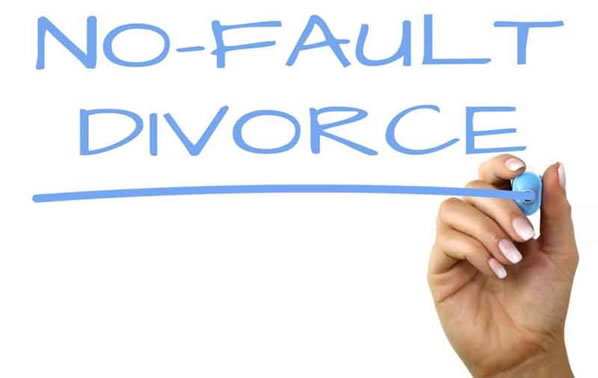
DIVORCE
FINANCE
CHILDREN
COHABITATION
CIVIL PARTNERSHIP
Recognising the needs of its clients, particularly the uncertainty and anxiety which flows from marital breakdown & separation is of great importance to us.
SENSITIVE...
SUPPORTIVE...
SUCCESSFUL!
BLOG

NO FAULT DIVORCE
Divorce, Dissolution and Separation Act 2020
Long title:
A Bill to make in relation to marriage and Civil Partnership in England and Wales provision about Divorce, Dissolution and Separation: And for connected purposes
The Divorce, Dissolution and Separation Act 2020 (the Act), designed to enable married couples to issue Divorce proceedings without assigning blame, has come into force as of 6th of April 2022.
The Act which received Royal Assent back on 25th June 2020, represents a key piece of reform of the law on Divorce, given its ambitious aim to reduce conflict between couples seeking to legally end their marriage or Civil Partnership.
Although 6th of April date is later than we had originally anticipated for the act to come into force, it is understood that this delay is intentional, to allow the HMCTS online Divorce portal to undergo the necessary updates to reflect this reform effectively.
This is the biggest change to UK Divorce law in over 50 years.
How to obtain a Divorce currently and what has spurred on the change?
In England and Wales Divorce was allowed on the grounds that the marriage has irretrievably broken down. The Matrimonial Causes Act 1973 specifies that the marriage may be found to have irretrievably broken down if one of the following is established:
- Adultery
- Unreasonable Behaviour
- Desertion- 2 years
- Separation (agreed divorce) – two years
- Separation (contested divorce) – five years
A Divorce in England and Wales is only possible for marriages for more than one year and when the marriage has irretrievably broken down. While it was possible to defend a divorce, the vast majority proceed on an undefended basis. A decree of divorce was initially granted Nisi before it was made Absolute.
The case of Owen -v- Owen 2018 UKSC41, intensified the necessity for reforms on our Divorce law after the case reached the Supreme Court. The difficulties experienced by Mrs Owens in obtaining her Divorce has renewed calls for such a new system of no- fault divorce to be introduced. Resolution has been calling for such a system for decades, and it is now supported by the Marriage Foundation.
Subsequently, the “Finding Fault” Nuffield Foundation report published in 2017, found that 62% of petitioner and 78% of respondents believed that using the fault had made the separation process more bitter.
Nigel Shepherd, the former chair of resolution who has spearheaded the call for no- fault divorce over many years said:
Whilst any delay is disappointing, we do now have certainty over the introduction of the important reform, and we will be able to advise that clients accordingly. Or members experience of using online forms and process is has not been universally positive and so it is essential that the IT is fit for purpose in order to ensure that the new divorce process works the way it is intended close stop the delay will also allow practitioners to become acquainted with the new rules in good time before the act comes into force.
We have met with the Ministry of Justice on a regular basis including the day of this announcement and we have received assurances that the government remains fully committed to bringing they act into force.
We will continue to work closely with them as the date of implementation approaches, we will be seeking concrete assurances at every opportunity that the new dates will be met and will keep members informed of progress and the new developments.”
Arguments for the No- Fault Divorce:
Supporters of the changes argue that the previous system had several major flaws. For example, if a couple wants a quick divorce without delay, they must agree between themselves who will take the blame.
Even if it’s just a legal formality working out who should be on the details to present the court could be an awkward and emotional process
It led to resentment that spilt over into negotiations about financial settlements and child arrangements.
Indeed, part of the problem is that people mistakenly believe that admitting to or being at fault divorce will affect the court’s decision in dividing assets upon separation.
Many found it is simply not financially viable to live apart in two separate households for two years before starting divorce proceedings and formally reaching a financial settlement. Another problem is with cases where one spouse no longer wants to be in the marriage but the other one refuses to accept it is over. There is a high bar for proving unreasonable behaviour which means that one spouse can often drag out the divorce which incurs more expense a more emotion.
Commenting on the forthcoming adoption of the no fault divorce in England and Wales, Aiden Jones, OBE, executive of relationship support charity, relate said:
"This much needed change to the law is good news for the Divorce in couples and particularly for children involved. The outdated fault-based Divorce system has led to couples to apporting blame, often resulting in increased animosity and making it harder for ex partners to develop positive relationships as co-parents."
The differences / similarities between a Fault and a No-Fault Divorce
The basis of the law remains the same:
Divorce is only possible where the marriages have irretrievably broken down however, the definition of an irretrievable breakdown is expended through two key changes the first changes that the divorce proceedings no longer have to be initiated by one partner alone.
Instead, a couple can make a joint application. While that may seem like a technical measure, supporters of the new law argue that it removes an inbuilt imbalance that undermines the attempts to split amicably.
The next change is that the list of the five permissible ways to prove that the breakdown (adultery, unreadable behaviour or, desertion, separation after two years separation, one party request after five-year separation) have been replaced by a single mechanism.
Now under the new legislation all that is required is for at least one party to provide a legal statement to say that the marriage has broken down irretrievably. This statement counts as conclusive evidence and cannot be contested.
The law does allow for a joint statement again increasing the opportunities for mutual splits and to avoid artificial imbalances. The relevant law on dissolution of civil partnerships will also be updated. The idea that broadly the same system and principles complete with no fault declaration of irretrievable breakdown will apply to both Divorce and Dissolution.
There has also been an opportunity to modernise and simplify some of the key legal terms in the divorce process-
- The Petitioner will now become the Applicant
- The Decree Nisi will now be called the Conditional Order
- The Decree Absolute will now be called the Final Order.
How will it work in practice, and will it speed up the Divorce process?
As the new legislation will also replace the current Nisi with a Conditional Order and the Decree Absolute with a Final Order. A six-month waiting period will be introduced which will include a 20-week waiting period between the start of the proceedings and the granting of the Conditional Order.
If the parties have applied for the no- fault Divorce jointly, the start of the proceedings will be the date on which both parties apply for the Divorce. In cases where only one party has applied for the Divorce the start of the proceedings will be the date when the notice of an application for a Divorce order has been received by the other party to the marriage.
Upon receipt of the Conditional Order there will then be a further period of six weeks, after which one party will be required to apply for a Final Order and affirm that they would like the divorce to be made final (as is currently the case when applying for the Decree Absolute).
This should continue to give parties the power to defer the finalisation of the Divorce until financial proceedings have been concluded which may be desirable if the financial order is likely to have an impact.
Tija Fitzgerald
Trainee Solicitor at Peterson Solicitors


